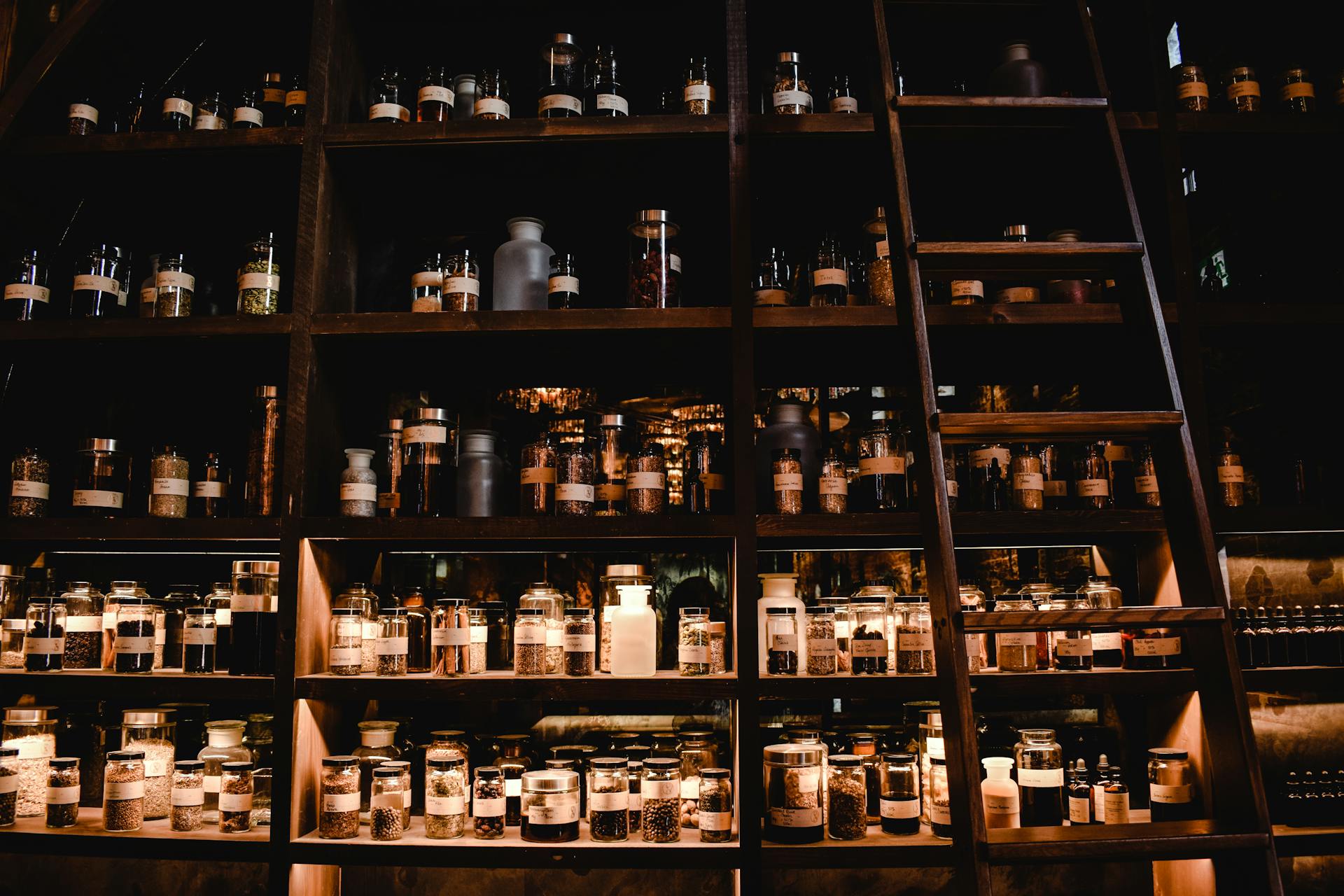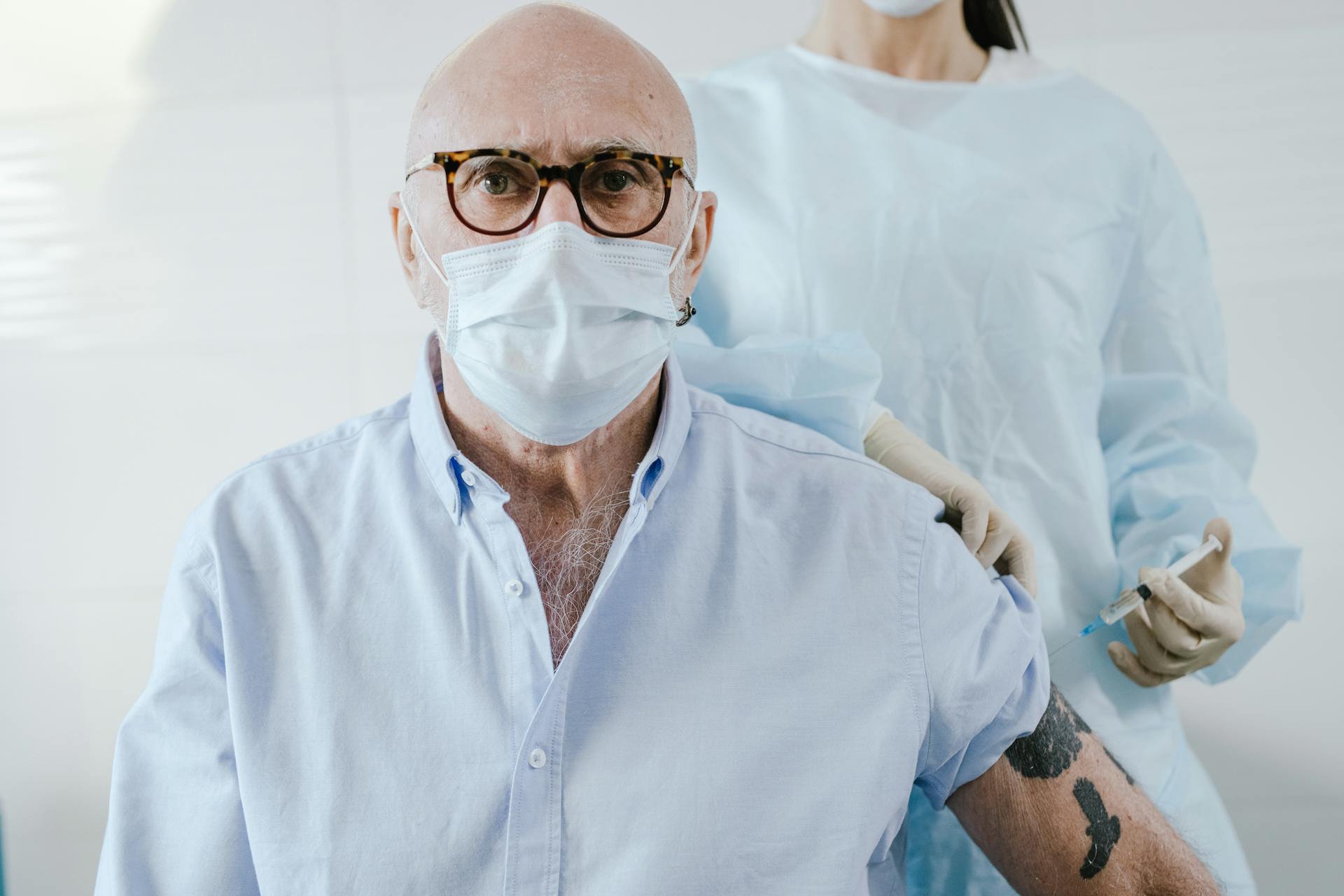
To get health insurance to cover human growth hormone, you'll need to understand how insurance companies typically view HGH treatment. Most insurance companies consider HGH a prescription medication, not a cosmetic treatment.
If you're diagnosed with a condition that requires HGH therapy, such as growth hormone deficiency, your insurance company may cover it. This is because HGH is used to treat a legitimate medical condition, not just to enhance physical appearance.
To increase your chances of getting insurance coverage, it's essential to work with a healthcare provider who has experience prescribing HGH. They can help you navigate the insurance process and provide the necessary documentation to support your claim.
The cost of HGH therapy can be high, with prices ranging from $1,000 to $5,000 per month. However, if you have insurance coverage, the out-of-pocket cost will be significantly lower.
Insurance Coverage for HGH Therapy
Insurance coverage for HGH therapy can be a complex and confusing process. Health insurance may cover growth hormone therapy for patients diagnosed with Adult Growth Hormone Deficiency (AGHD), but it depends on several factors, including the specific insurance plan and the nature of your current symptoms.

Most health insurance companies have strict criteria for providing medication coverage for growth hormone therapy in adults, and the patient's healthcare provider must demonstrate that growth hormone treatment is essential for relief from symptoms of AGHD and improving the quality of life.
To be considered "medically necessary", adult patients typically must undergo a series of diagnostic tests, including stimulation tests that demonstrate insufficient growth hormone production. Factors that influence medical coverage for growth hormone replacement therapy for adults include medical necessity, FDA-approved indications, prior authorization, policy limitations, and age-related growth hormone deficiency.
Health insurance companies may not recognize the long-term benefits of HGH for individuals whose growth hormone levels decline due to natural aging if they do not meet the clinical criteria for AGHD. They typically distinguish between pathological AGHD and normal age-related hormone decline, with the former being more likely to be covered.
Here are the key factors that influence medical coverage for growth hormone replacement therapy:
- Medical Necessity: The patient’s healthcare provider must demonstrate that growth hormone treatment is essential for relief from symptoms of AGHD and improving the patient’s quality of life.
- FDA-Approved Indications: Growth hormone therapy is FDA-approved for AGHD, so insurers are more likely to cover it if the therapy aligns with the approved uses.
- Prior Authorization: Insurance providers usually require prior authorization before covering GHT, which involves a detailed review of the patient’s medical history, test results, and the doctor’s justification for the therapy.
- Policy Limitations: Coverage may vary widely between insurance plans. Some plans may cover the therapy under specific conditions, while others may deny coverage or limit the duration of the therapy.
- Age-Related Growth Hormone Deficiency: Many insurance companies may not recognize the long-term benefits of HGH for individuals whose growth hormone levels decline due to natural aging if they do not meet the clinical criteria for AGHD.
Growth hormone therapy costs can range from $500 to $1000 or more per month, depending on the prescription and individual needs.
Benefits and Costs of HGH Therapy

HGH therapy offers numerous health benefits, including improved bone density, reduced insulin dependency, and enhanced skin health. These benefits can be life-changing for those who need them.
Typically, legitimate companies charge around $1,000 to $5,000 per month for injectable HGH, depending on dose size and potency. This can be a significant expense, but it's essential to choose a trusted source that undergoes rigorous testing to ensure quality and safety.
Here are some of the key benefits of HGH therapy:
- Improved bone density
- Reduced insulin dependency
- Lower cholesterol
- Enhanced skin health
- Slowed hair loss
- Increased lean muscle mass
- Boosted metabolism and energy levels
Keep in mind that online or out-of-country purchases may be cheaper, but beware of deals that seem too good to be true, as they can be contaminated or ineffective.
Benefits of HGH Therapy
HGH therapy has numerous benefits, including improved bone density, which can be especially important for people with osteoporosis or those who are at risk of developing it.
Reducing insulin dependency is another advantage of HGH therapy. This can be a significant benefit for people with diabetes or those who are at risk of developing the condition.

Lower cholesterol levels are also a result of HGH therapy. This can help reduce the risk of heart disease and stroke.
HGH therapy can also enhance skin health, reducing the appearance of fine lines and wrinkles.
Slowed hair loss is another benefit of HGH therapy. This can be a welcome change for people who are experiencing thinning or balding.
HGH therapy can also increase lean muscle mass, which can improve overall physical strength and endurance.
Boosted metabolism and energy levels are also a result of HGH therapy, making it easier to stay active and engaged in daily activities.
Here are some of the key benefits of HGH therapy:
- Improved bone density
- Reduced insulin dependency
- Lower cholesterol
- Enhanced skin health
- Slowed hair loss
- Increased lean muscle mass
- Boosted metabolism and energy levels
HGH Therapy Costs
HGH therapy costs can be a significant concern for those considering treatment. Typically, legitimate companies charge around $1,000 to $5,000 per month for injectable HGH, depending on dose size and potency.
If you're looking for cheaper options, be wary of online or out-of-country purchases that seem too good to be true. These products can be contaminated or ineffective, posing severe allergic reactions or other adverse effects.
Choose HGH from trusted sources that undergo rigorous testing to ensure quality and safety. Medical professionals should supervise HGH injections to minimize risks.
Insurance may cover HGH therapy costs for conditions commonly treated with HGH, but it's unlikely to cover anti-aging purposes or non-FDA-approved methods like oral supplements.
Genotropin Information

Genotropin is a recombinant human growth hormone used for certain growth-related conditions in children, such as low growth hormone, Turner Syndrome, and Prader-Willi Syndrome.
It's also used for low growth hormone in adults, which can be a result of various health issues.
Some common growth-related conditions in children that Genotropin is prescribed for include Turner Syndrome and Prader-Willi Syndrome.
Here are some specific conditions that Genotropin is used to treat:
- Certain growth-related conditions in children (e.g., low growth hormone, Turner Syndrome, Prader-Willi Syndrome)
- Low growth hormone in adults
What Is Genotropin Used For?
Genotropin is a recombinant human growth hormone, and it's used to treat certain conditions in both children and adults. It's particularly effective for children with low growth hormone levels. GENOTROPIN is also used to treat Turner Syndrome and Prader-Willi Syndrome, both of which are growth-related conditions.
For adults, GENOTROPIN is used to treat low growth hormone levels. This can be a result of various factors, and it's essential to consult a doctor to determine the best course of treatment.

GENOTROPIN is a targeted treatment that helps regulate growth and development. It's not a cure-all, but it can make a significant difference in the lives of those who use it.
Here are some conditions that GENOTROPIN is used to treat in children:
- Certain growth-related conditions (e.g., Turner Syndrome, Prader-Willi Syndrome)
- Low growth hormone
Genotropin Administration Instructions
Genotropin is available under different brand names, including Genotropin, Humatrope, Norditropin, Nutropin AQ, Omnitrope, Saizen, and Zomacton.
Each brand contains a different amount of somatropin and has specific administration instructions, so they are not interchangeable. Your healthcare provider will determine the right dose for you or your child based on the condition being treated.
For growth-related conditions in children, the dose is based on their body weight, and the medication is injected under the skin either 3, 6, or 7 days a week. The frequency of injections depends on the condition and the brand medication used.
Here's a summary of the dosing frequency for children:
- 3 days a week
- 6 days a week
- 7 days a week
For adults with low growth hormone, the medication is commonly injected under the skin once a day. Some providers may choose to dose based on weight, while others may start with a low dose and gradually increase it based on response to treatment.
GENOTROPIN Safety

GENOTROPIN is a safe and effective treatment when used for FDA licensed indications. You should always discuss potential side effects with your physician to ensure the medication is suitable and right for you.
While GENOTROPIN is generally safe, there are certain conditions where it's not recommended. Children with Prader-Willi syndrome who are severely obese or have severe respiratory impairment should not use GENOTROPIN, as there have been reports of sudden death.
You should not use GENOTROPIN if you have a hypersensitivity to somatropin or excipients, or if you have active malignancy.
GENOTROPIN is not suitable for children with closed epiphyses, which means their growth plates have fused. This is an important consideration for pediatric patients.
Here are some specific conditions where GENOTROPIN is contraindicated:
- Acute Critical Illness
- Active Malignancy
- Hypersensitivity to somatropin or excipients
- Active Proliferative or Severe Non-Proliferative Diabetic Retinopathy
- Children with closed epiphyses
- Children with Prader-Willi syndrome who are severely obese or have severe respiratory impairment
Lowering Prescription Costs
Legitimate HGH therapy can cost between $1,000 to $5,000 per month, depending on the dose size and potency.
It's worth noting that online or out-of-country purchases may be cheaper, but be cautious of deals that seem too good to be true, as they can be contaminated or ineffective.

Choose HGH from trusted sources that undergo rigorous testing to ensure quality and safety.
If you're looking to lower the cost of your GENOTROPIN prescription, you can save up to 90% with qualified options.
Here are some programs that can help lower the cost of your GENOTROPIN prescription:
- Rx Advantage Card
- Drug Coupons
- Patient Assistance Programs
- Canadian Prescription Savings
Applicability to each program will be dependent on your insurance status.
You can receive your GENOTROPIN prescription for as little as $0 or even get it for free with available options.
After creating a FREE account with NowPatient, you'll have access to these 4 programs that can help lower the cost of your GENOTROPIN prescription.
Frequently Asked Questions
What medical conditions qualify for HGH?
Children with growth hormone deficiency, kidney disease, Prader-Willi Syndrome, or Turner's syndrome may qualify for growth hormone treatment. These conditions can affect normal growth and development in kids.
Can I get a prescription for HGH?
To get a prescription for HGH, you'll need to consult with a healthcare professional who can assess your condition and determine if treatment is necessary. They will then prescribe lab-made HGH if it's deemed suitable for your needs.
Sources
- https://www.kingsbergmedical.com/does-insurance-cover-growth-hormone-therapy/
- https://theantiagingclinics.com/much-hgh-therapy-cost/
- https://www.nexelmedical.com/hgh-therapy/will-insurance-cover-hgh-therapy/
- https://cosmoins.com/navigating-the-complex-landscape-of-growth-hormone-therapy-insurance-coverage/
- https://nowpatient.com/medications/genotropin
Featured Images: pexels.com


